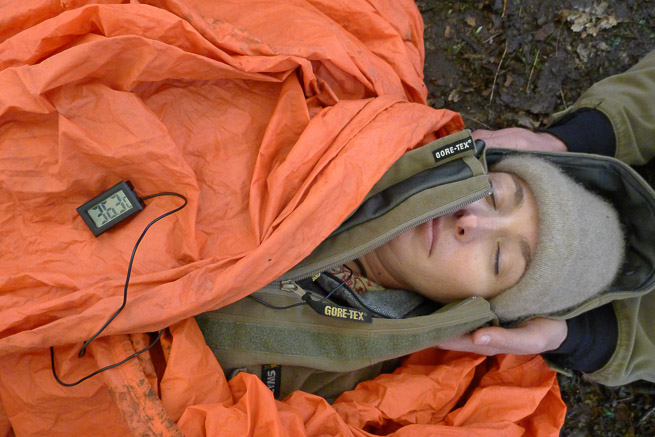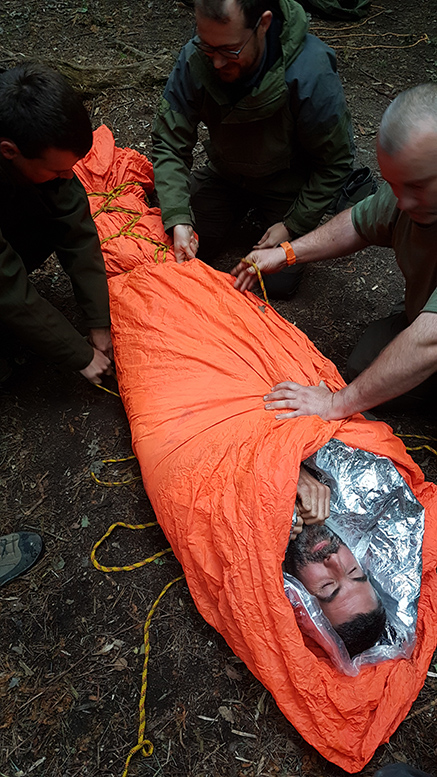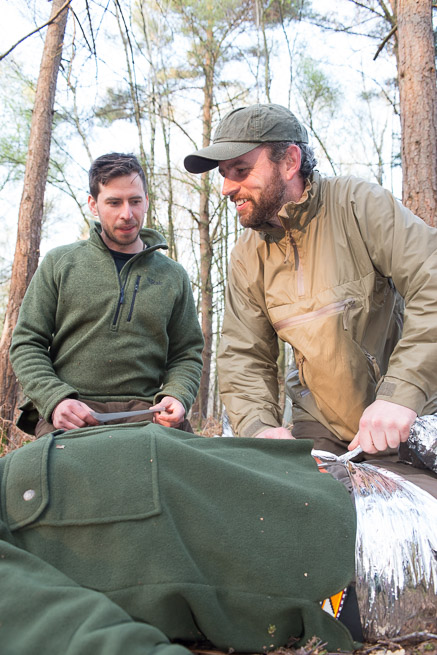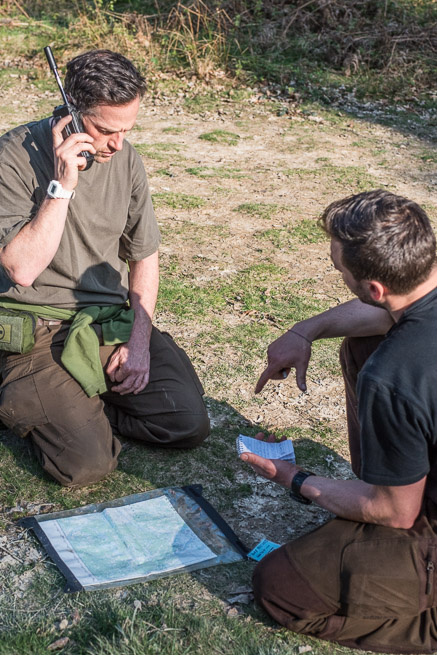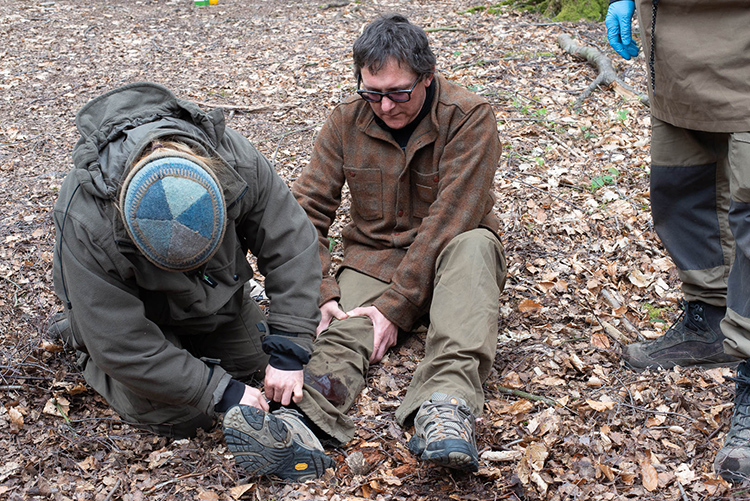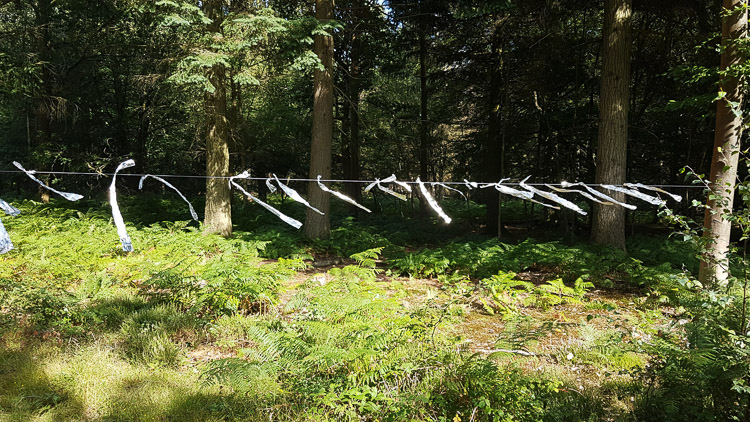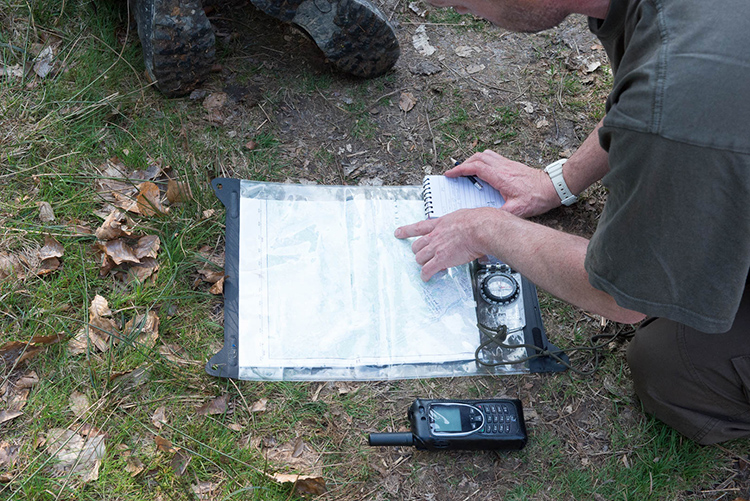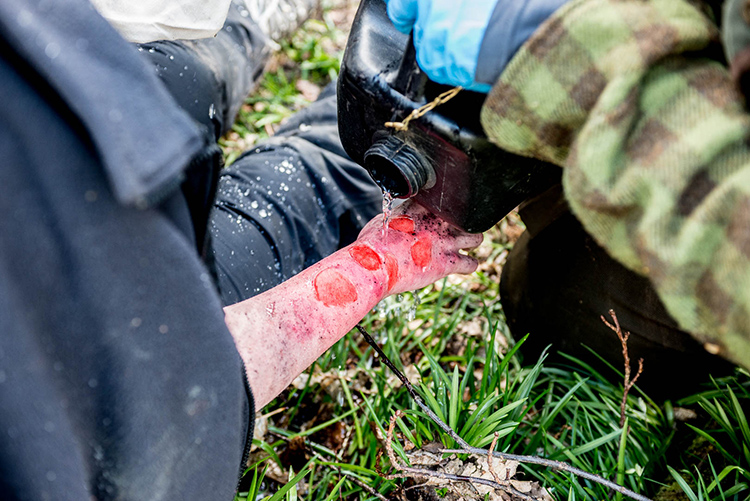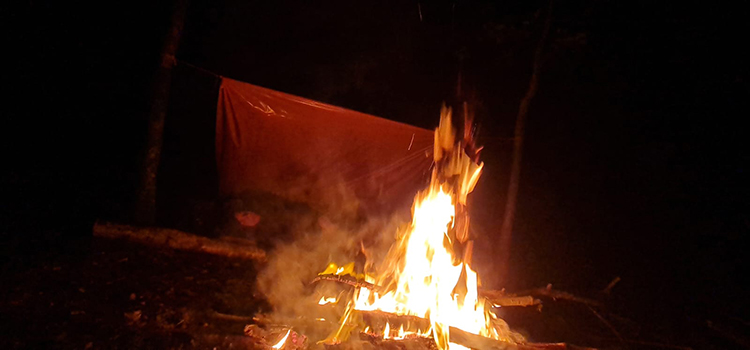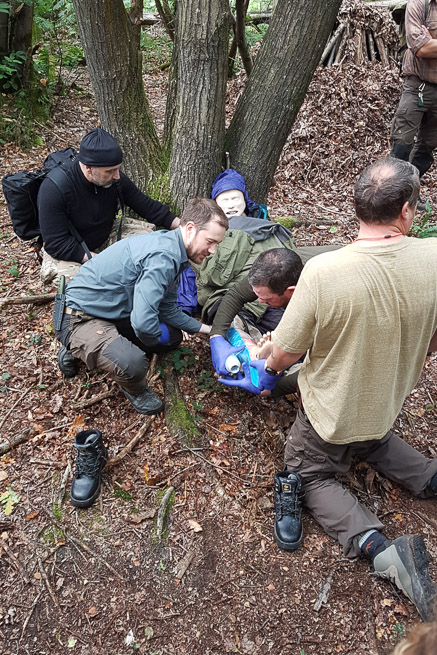What Is The Outdoor Emergency Preparedness Course?
Aimed at hikers, bikers, campers, bushcrafters, canoeists, riders, shooters…. in fact anyone who spends time outdoors for leisure or work, who might need to be able to look after themselves and companions when things go awry. This unique course brings together the the skillsets of Frontier Bushcraft and Real First Aid.
Frontier Bushcraft brings experience in both bushcraft and survival skills training, along with preparing for and undertaking expeditions in wild and remote country. Real First Aid brings experience in first aid training for remote environments.
You might ask, “how far out do I have to be before I am remote?”. Any outdoor emergency that is not in an urban setting involves a degree of remoteness, along with additional complications, which you should be prepared to deal with.
Why The Outdoor Emergency Preparedness Course?
Things can, and do, go wrong outdoors.
Difficult situations outdoors generally start with one or more mistakes, miscalculations or misfortunes. Such occurrences can lead to an immediate emergency or, perhaps, the beginning of a slippery slope into a serious situation.
The aim of this course is to help you to dodge the common and avoidable mistakes, improve your calculations, and be more prepared for the unpredictable. In this way, you will become more resilient in the face of potential adversity.
A significant number of accidents and negative occurrences in outdoor activities repeat themselves fairly often, and in many cases, are avoidable. They are the result of poor preparation, lack of knowledge, limited experience, overconfidence, faulty heuristics, or irrational behaviour.
The antidote to this is better preparation, increased knowledge, building experience (plus learning from the experience of others), learning to be more realistic about capabilities, and improving your mental frameworks and decision-making.
Even for the well-prepared, outdoor activities generally have some attendant risks, which are impossible to reduce to zero, even if the likelihood is low. Training is the differentiator here, as well.
“It has been shown many times that people who are properly briefed, trained, drilled and with a knowledge of what to expect in a survival situation will show a higher degree of effectiveness should such a situation arise”. John Leach, Survival Psychology.
It’s worth considering that difficult situations in the outdoors often aren’t called “survival situations” at the time, only being considered such afterwards, once they are analysed. A series of small issues can compound to create a difficult situation and if negative factors continue to compound, the accumulation of such can become life threatening for you or your companions. The best preparation is to have sufficient training to be able to reduce the compounding effect of things not going to plan, to stop many difficult situations becoming full-blown survival situations.
“Training and safety systems are… a form of prediction since they aim to control the future.” Laurence Gonzalez, Deep Survival.
Outdoors people can find themselves afraid of the wilds, especially when under stress. Increasing your knowledge of the woods, the bush, the forest, is a sure way to be more comfortable, both physically and psychologically, even when not in a “bad” situation. When you possess more knowledge and skill in using the natural materials around you, if the situation does become more difficult, you are starting from a point of less stress and you are working with more ability.
“The bush is neutral. It is neither for nor against me. My comfort depends on what I can do for myself and how much I know about using the bush materials around me.” – Mors Kochanski.
Key Elements Of The Outdoor Emergency Preparedness Course
Remote First Aid – As part of the course you will be able to gain a certificate for the a 2-day outdoor first aid course that meets the standards of National Governing Body (NGB) awards such as Mountain Training, British Canoeing, RYA, etc. There is much more to this course than a 16-hour first aid course, though…
Extended Care – Further medical training for tending to and monitoring casualties over longer periods of time.
Strategies For Emergencies and Their Avoidance – Preparation and planning to avoid problems; Frameworks for dealing with difficult situations if they do occur.
Protection From The Environment – Clothing, Shelter and Fire.
Signalling and Communication – Calling for help and attracting attention. From getting the most from your phone, to mirrors, marker panels, and signal fires, though to SPOT devices, PLBs and satellite phones.
Finding Your Way To Safety – How not to get lost; Strategies for re-location.
What To Carry – Useful equipment, and how to use it.
Scenario Training – Blending first aid with survival skills in realistic scenarios in which you will apply what you have learned, as well as learning more from working through the scenario itself.
All the Other Details You Need to Know…
Equipment
You don’t need to spend lots of money on specialist clothing or equipment for this course. What you will need is some basic outdoor clothing and camping equipment.
A suggested kit-list is available here and it will also be e-mailed to you with your e-mail receipt after your booking has been accepted.
Specialist equipment will be provided for your use during the course.
Accommodation
This course will be conducted entirely outdoors, from an expedition-style base camp and you will be camping out for the duration of the course.
There will be a covered teaching area which also serves as a communal area for breaks. There is a fire, kettle, tea, coffee, biscuits and cordial available here.
Food
This course is self catered so please bring food enough for the week and a stove for cooking. If you have attended a course where you have been taught safe fire-management techniques and leave-no-trace, then you can cook over a fire. Even so, you may still want to pack a stove for occasions when you need more speed.
Experience Required
No previous first aid, bushcraft or camping experience is required to attend this course. All you need is an enjoyment of being outdoors, an interest in the skills being taught and a willingness to apply what you learn.
Availability and Booking: Outdoor Emergency Preparedness Course
Duration: 7 days.
Price: £797
Deposit: 25% on booking.
Suitability: 18 years and above.
Course size: 12 participants (maximum).
Location: East Sussex.
Course Meeting Time: 18:30 Day 1.
Course Finish Time: 16:00 Day 8.
Course Leader: Paul Kirtley and Adam Gent.
Frontier Bushcraft Outdoor Emergency Preparedness Course Dates:
14/08/23 – 20/08/23 FULLY BOOKED
04/08/24 – 11/08/24 New Date!
Back to the bushcraft courses page

